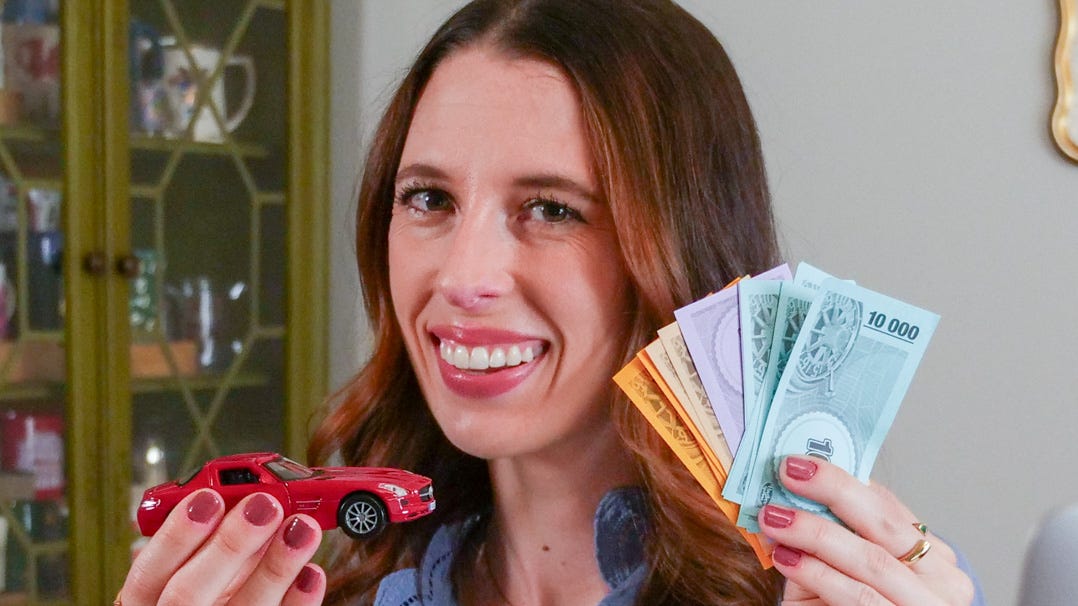How to buy a used car without getting scammed: A step-by-step guide

- Research vehicle history reports using the VIN and check for open recalls before committing to a used car purchase.
- Have a trusted mechanic perform a prepurchase inspection to identify potential hidden problems.
- Check the seller's reputation, especially if buying from a dealership, and be wary of deals that seem too good to be true.
Buying a used car can be a smart financial decision – especially when you’re looking to avoid the steep depreciation that comes with new vehicles. But it also comes with risks. Without careful research and preparation, you could end up with a car that costs more in repairs than it’s worth.
The Better Business Bureau wants to help consumers shop with confidence. Whether you're buying from a dealership or a private seller, here are key steps to protect yourself and make an informed decision.
Know what you need before you shop
Start by deciding what kind of car fits your needs. Think about how much space you need, what kind of driving you do most often, and which features are important to you – such as fuel efficiency, safety ratings or infotainment systems. Then, set a realistic budget that includes not just the purchase price, but also registration, insurance, maintenance and possible repairs.
Once you know what you’re looking for, research models that meet your criteria. Look at reliability ratings, customer reviews and the average resale value for each option. Having a few target models in mind will make it easier to compare deals and avoid getting overwhelmed.
Check prices to ensure you're getting a fair deal
After narrowing down your options, check pricing through trusted resources like Kelley Blue Book, Edmunds or NADA Guides. These tools give you the fair market value based on the car’s make, model, mileage, condition and location.
If a deal seems too good to be true, it probably is. Be cautious of cars priced significantly below market value – especially if the seller is pressuring you to act quickly.
Do your due diligence before buying
Before making any commitments, get the vehicle identification number (VIN) and request a vehicle history report from a reputable service like Carfax or AutoCheck. This report can reveal important details, such as past accidents, flood damage, odometer rollbacks or if the car was ever declared a salvage vehicle.
Also, check if there are any open recalls on the car by visiting nhtsa.gov/recalls. If a recall has not been addressed, the repair should be free – but it’s important to know about it ahead of time.
Inspect the car carefully – and bring a professional
Always inspect the vehicle in person, ideally in daylight and good weather. Look for signs of wear or damage both inside and out. Pay attention to any uneven paint, rust, worn tires or warning lights on the dashboard.
Most importantly, have the car inspected by a trusted independent mechanic before finalizing the sale. A prepurchase inspection can uncover hidden issues that even the seller may not know about – and could save you from costly repairs down the line.
Understand the terms before you sign
If you’re buying from a dealership, read all documents carefully before signing. Make sure you understand the terms of any warranties, return policies and financing arrangements. Don’t be afraid to ask questions or walk away if something doesn’t feel right.
If you’re buying from a private seller, confirm the seller is the rightful owner and that the title is clean and in their name. Never agree to make payments without taking possession of the title.
Whether you're buying from a dealer or private party, avoid paying with cash or wire transfers. Instead, use a secure payment method that offers some form of buyer protection.
Watch out for scams
Unfortunately, the used car market is a popular target for scams. Be wary of sellers who refuse to meet in person, rush the process or insist on unusual payment methods. Some scammers post fake listings using stolen photos and request deposits or full payments before disappearing.
Trust your instincts and report suspicious activity to authorities and BBB Scam Tracker at bbb.org/scamtracker.
Choose a seller you can trust
If you’re buying from a dealership, check their BBB Business Profile at bbb.org to read reviews, confirm their accreditation and see if any complaints have been filed. Look for a seller with a solid reputation and a track record of ethical business practices.
Buying a used car doesn’t have to be risky. With research, planning and careful inspection, you can find a reliable vehicle that fits your needs and budget – without any unpleasant surprises.
For more tips and tools to protect your purchases, visit bbb.org. Whether you're buying your next vehicle or planning your next big investment, BBB is here to help you make informed choices.
Jan Diaz is the President/CEO of the Better Business Bureau serving Northern Indiana, which serves 23 counties. Contact the BBB at 800-552-4631 or visit www.bbb.org.